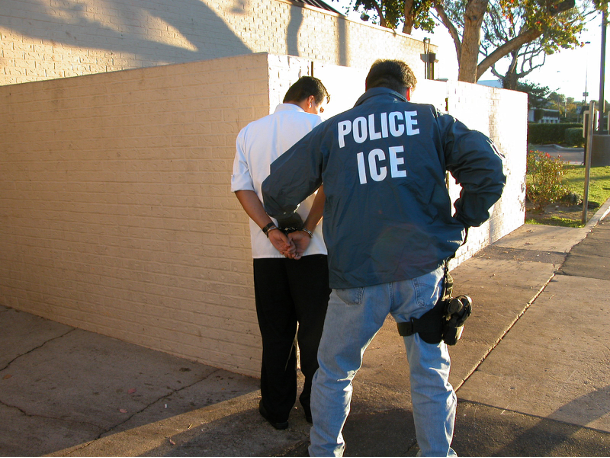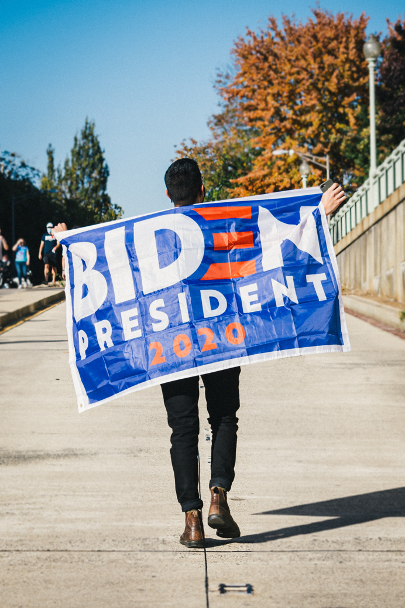Insecure Justice: Migrants’ Right to Due Process
By Matthew Smoldt

By Matthew Smoldt
In December of 2010, James Makowski, a U.S. citizen, plead guilty to the sale of heroin. The court sentenced Makowski to several months of rehabilitation at a so-called boot camp. Yet, Makowski was transferred to a maximum-security prison for two months. Why? The Department of Homeland Security (DHS) had filed for his detention in July. Mr. Makowski had been unaware of the detainer against him. The DHS made its request as part of the Secure Communities program, which, since 2008, has been the federal government’s main program to identify and deport undocumented immigrants. The program relies on file-sharing between local law enforcement agencies, the Federal Bureau of Investigation, and the Department of Homeland Security. Local law enforcement shares the information of all arrestees with federal agencies. In turn, federal agencies check the data against their records.

Mr. Makowski’s experience is not unique. Opponents criticize the Secure Communities program for its lack of due process. Many arrestees are unaware of detainers against them, and, even if informed, some remain detained despite efforts to prove their citizenship. The lack of due process brings into question the United States’ adherence to the Universal Declaration of Human Rights, which it endorsed as a member of the United Nations, and the International Covenant on Civil and Political Rights, which the U.S. ratified in 1992. Article 9 of the Declaration of Human Rights protects individuals from arbitrary detention, and Article 11 grants the presumption of innocence until proven guilty. Article 9 and 14 of the Covenant on Civil and Political Rights specify the arraigned have the right to know the charges against them, and Article 10 says law enforcement should hold the accused and the convicted in separate facilities. Mr. Makowski did not enjoy many of these rights. He went five months without knowledge of the detainer against him, and, upon learning of it, he was imprisoned. And, although Mr. Makowski came under scrutiny for a genuine felony, between 26% and 37% of deportees are not convicted of any felony, and another 40% of deportees are convicted of low-level offenses, including littering and driving without a license. Moreover, scholars argue the program condones racial profiling and pretextual arrest. As a result, undocumented immigrants live in fear of deportation, which keeps them from engaging with police, especially to report crimes.]
What might restore justice to the program? As a new administration enters the White House, are conditions conducive to change? Popular opinion is often advanced as an explanation for immigration policy. If politicians seek re-election, then they should make policies that please the electorate. If American voters wants to reform the Secure Communities program, then the White House will do so. But, do Americans consider immigration as an important issue, and, if so, do Americans agree on immigration policy? About every four years, the University of Michigan conducts the American National Election Study (ANES). The survey is a representative sample of the American people and is a common barometer of public opinion. According to the 2016 ANES, immigration amounted to the seventh most important issue facing the country. Of 2,541 respondents, only 160 deemed immigration as the most important issue. Thus, immigration policy, namely, reform of Secure Communities, seems an unlikely way for the new administration to win over Americans. Even if immigration were an important issue, the administration might be unwilling to alter its present stance. Research reveals a highly polarized public (across measures), and the Biden administration may not want to stoke antagonism by proposing reform.
What about global conditions? Does the United States face pressure from abroad to reform Secure Communities? Though neither foreign governments nor international organizations are calling for reform of the program, circumstances may still precipitate it. Due to its economic consequences, immigration policy is sometimes thought of as indirect economic policy. Governments can welcome foreign labor when the economy demands and remove foreign labor when voters like. Though surveys, like the 2016 ANES, reveal Americans do not care about immigration as much as other issues, such as race relations and health care, the global economic downturn might make reform possible. The American economy thrives when foreign markets thrive. Many American businesses rely on migrant labor, and migrants’ earnings help counter foreign financial crises via remittances. If cheap labor will help the American economy recover, and if migrants’ remittances will bolster foreign markets, then the White House might be amenable to reform. More specifically, if the government can discourage racial profiling and pretextual arrests under the Secure Communities program, then fewer undocumented immigrants will be eligible for deportation. With fewer undocumented migrants exiting the country, and a larger pool of remitters, the American and global economy can grow. Of course, such recovery may involve the exploitation of migrant labor, which puts the justness of American labor laws in question. Nonetheless, the global economic downturn could incentivize the White House to retool the Secure Communities program.

In sum, neither public sentiment nor economic conditions will exert overwhelming pressure on the Biden administration to reform the Secure Communities program. The economic downturn in the wake of the global pandemic may motivate a revision of the program. Yet, the importance of other issues to the American public may compel the Biden administration to accept the status quo. If so, local law enforcement agents will continue to feel justified in racial profiling and pretextual arrest. Immigrants, especially the undocumented, will continue to be detained beyond a justifiable period of time, without knowledge of their indictment, and without an opportunity to contest their detention. Without clear hope for reform, the next four years do not promise justice to the immigrant community.

Matthew Smoldt is a doctoral student in the School of Politics and Global Studies at Arizona State University. His interests include migration, immigration policy, and international finance. His recent works concern the causes and consequences of migrants’ remittances.